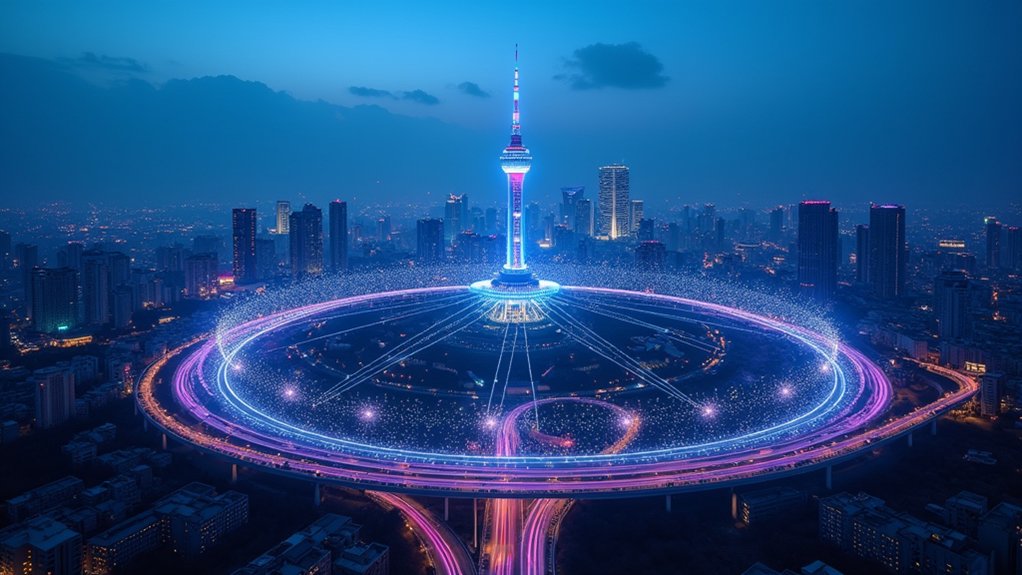Beijing is going all-in on 5G technology. The capital city just disclosed ambitious plans to achieve thorough 5G integration across all industries by 2027. Not just partial coverage—we’re talking 100% penetration among individual users. Yeah, complete saturation.
The plan, jointly released by the Beijing Municipal Bureau of Economy and Information Technology and the Beijing Communications Administration, sets aggressive infrastructure targets. They’ll deploy 70 5G and 5G-Advanced base stations per 10,000 residents over the next three years. That means building or upgrading over 35,000 new 5G-A stations. Seamless coverage within the Fifth Ring Road? Consider it done.
Beijing’s not starting from scratch. As of April 2024, the city already boasts 21.27 million 5G subscribers—that’s 53.1% of mobile users—and 114,500 base stations. First in China, thank you very much.
Beijing’s 5G game isn’t starting from zero—they’ve already got 21+ million subscribers and dominate China’s leaderboard.
The real game-changer is 5G-Advanced (or 5.5G if you’re into the cool lingo). We’re talking 10 Gbps peak speeds. The comprehensive initiative will ensure key areas receive dedicated 5G-A services to maximize performance and reliability. Good luck finding a way to use all that bandwidth.
This isn’t just about faster TikTok downloads. The city is targeting industrial applications like smart manufacturing, humanoid robotics, and autonomous driving. They’re rolling out 400 “5G smart hospitals” and implementing remote diagnostics. This initiative aims to position Beijing as a national benchmark city for 5G adoption and implementation. Drones for logistics? Sure. Glasses-free 3D tech? Why not.
By 2027, officials expect over 75% of cellular traffic to run on 5G networks and 45% of industrial enterprises to adopt the technology. It’s part of China’s broader “Set Sail” action plan for digital transformation.
The economic impact could be massive. Mobile tech is projected to contribute about $2 trillion to China’s digital economy by 2030. Beijing wants to lead that charge, positioning itself as the national benchmark for 5G innovation.
Smart city? More like genius city if they pull this off.




